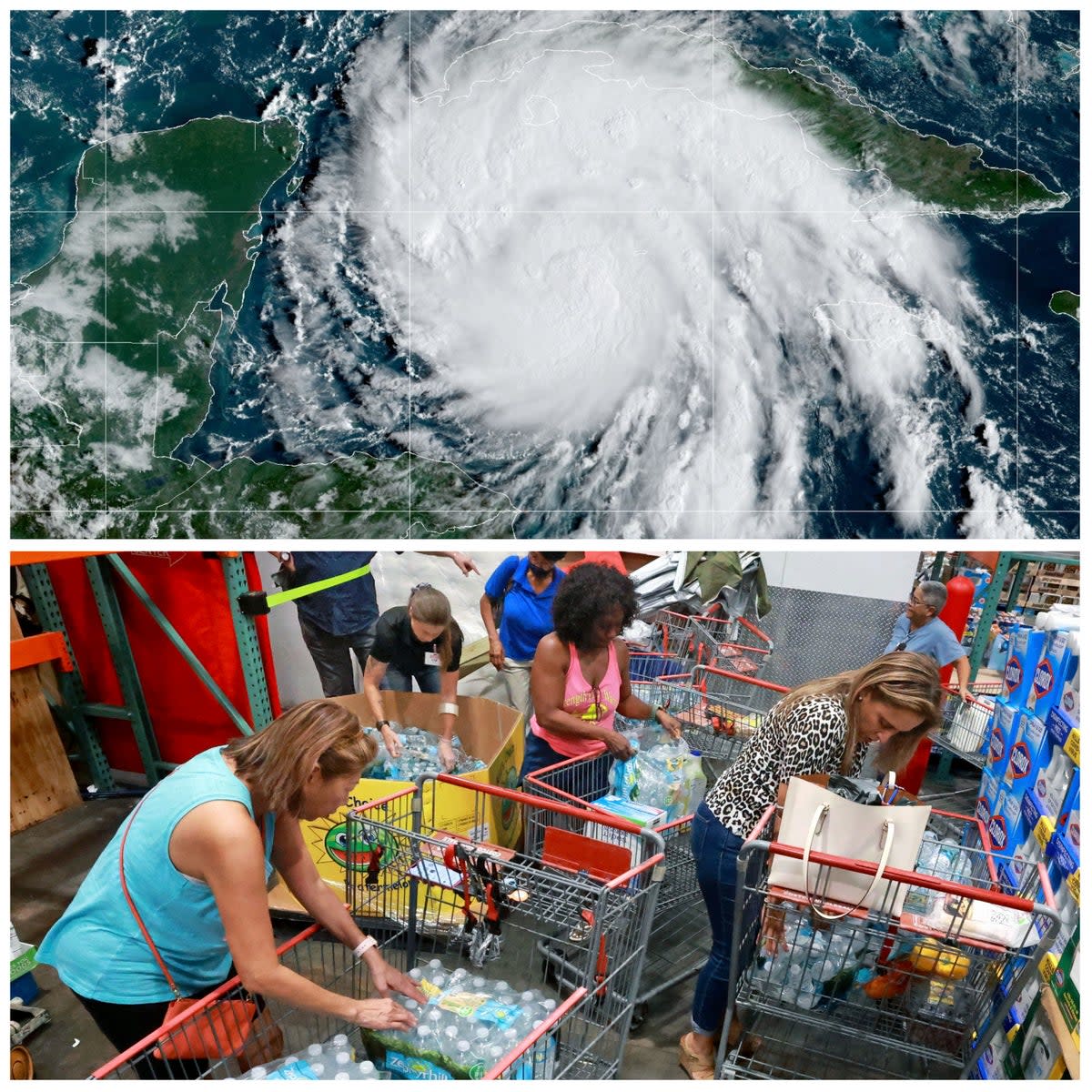Hurricane Ian evacuations underway as Florida braces for impact: ‘Get out right now’

Mandatory evacuations have been issued for hundreds of thousands of people as Hurricane Ian charts a path towards the west coast of Florida with severe winds, flash flooding, storm surge and possible tornadoes.
Governor Ron DeSantis warned Floridians to prepare but not panic during a Monday briefing after the storm was upgraded to a Category 1 hurricane.
“This is a really, really big hurricane at this point,” Governor DeSantis said. He added that the hurricane’s path was still uncertain meaning that it could “wobble” in or away from the peninsula.
Florida’s Gulf Coast is forecast to be severely impacted with conditions worsening up to 36 hours before the peak. Meteorologists report than Ian will be supercharged by warmer waters in the Gulf of Mexico and could hit Florida as a monster Category 4 hurricane with top winds of 140 mph (225 km/h).
The National Hurricane Center warned of life-threatening storm surge which could reach up to 10 feet around Tampa.
Some 300,000 people are being evacuated in Hillsborough county, which includes the city of Tampa, along with Manatee and Hernando counties.
Pinellas County will begin mandatory evacuations on Monday evening at 6pm. “Get out right now,” Pinellas County Sheriff Bob Gualtieri said on Monday.
The county, which includes the cities of St Petersburg and Clearwater, is projected to experience some of the most severe impacts from the hurricane.
At a press conference, the sheriff said that while residents will not be forced to leave, they were being urged to take the calls for mandatory evacuations seriously.
“What it means is, we’re not going to come help you. If you don’t do it, you’re on your own,” he said
Many more were being asked to leave voluntarily. The state had lifted toll charges on some major highways to make it easier for people to get out of harm’s way.
More than a dozen school districts had canceled classes along with a handful of college systems and state universities, the Florida Department of Education said in a notice.
Disney is “closely monitoring” Hurricane Ian as the storm is expected to hit the theme park.
Other tourist favourites had already made the decision to close. Zoo Miami will close on Tuesday and Wednesday “in an abundance of caution”. Though the Florida city is not expected to experience the worst of the hurricane, the zoo said that staff wanted to focus on its “residents” and make sure they are prepared for any significant wind or rain.
Some 5,000 National Guard had been mobilized in Florida with additional troops on hand in neighboring Georgia and Alabama.
The hurricane will impact the Cayman Islands and hit western Cuba on Monday night into the early hours of Tuesday. “Efforts to protect life and property should be rushed to completion,” the US National Hurricane Center (NHC) warned.
Classes were suspended in Pinar del Rio province of Cuba and evacuations underway as the country shut down its train system.
In the Cayman Islands, members of the government and opposition were working together “to ensure that our people are made as safe as possible — the supplies, plywood, in some cases sandbags, are distributed so that they can safely weather this storm,” Premier Wayne Panton said in a video posted on Sunday.
Gov DeSantis urged people not to panic buy, noting that essentials like water were making it to major grocery store chains in Florida and that gas stations were being topped off with fuel.
He also urged any resident using a generator to keep it outside. In recent years, a number of deaths have been caused by carbon monoxide poisoning during storms after people used generators inside properties.
The governor will speak again on Tuesday and may give an additional briefing late on Monday as the storm progresses.
As Florida prepares, Atlantic Canada and parts of the Caribbean including Puerto Rico were still recovering from Hurricane Fiona last week.
At least five deaths were reported in the Caribbean, and one death in Canada, authorities said. Fiona made landfall as a post-tropical cyclone in Nova Scotia early on Saturday.
The body of a 73-year-old woman was dicovered in the water after she went missing in Channel-Port Aux Basques, a town on the southern coast of the Canadian province of Newfoundland.
Police said the woman was inside her residence moments before a wave struck the home on Saturday morning, tearing away a portion of the basement.
The climate crisis is increasing average ocean and air temperatures globally, and supercharging hurricanes with more heavy rain and powerful winds.
This article has been updated

 Yahoo News
Yahoo News 
